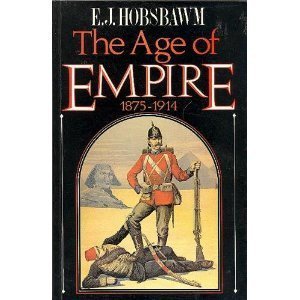'The Age of Empire' - Eric Hobsbawm - Review
In this volume, the final in a trilogy written about the 19th Century. The final years of Belle-Epoque Europe (1875-1914) are comprehensively covered in this masterpiece. Hobsbawm is a Marxist Historian, he was a member of the British Communist Party, and the Communist Party Historians Group. The label 'Marxist' has a very different meaning in the field of historiography. A literal meaning would give the reader the impression that this volume is simply Marx's 'Communist Manifesto' set in the opulence of pre-war Europe. However, in this context, it simply means that the historian takes social and economic factors into account as the motives of groups and individuals to act. Initially pioneered by Karl Marx, this is now a universal concept used by historians throughout the political spectrum.
'The Age of Empire' gives a fully-rounded sweep of the activities and achievements of the men and women of the era. In contrast to the title, Hobsbawm gives little attention to the Imperialism of the era and gives a balanced account of all aspects of the era, from the 'well-heeled Parisian lesbians' to the Italian migrant workers working seasonally on the plains of Argentina. To his credit, Hobsbawm objectively explains the contributions and originality of luminaries such as Freud and Picasso, without any obtrusive attempts to demonstrate that the intellectuals and artists were simply puppets dancing to the strings of monopoly Capitalism, in spite of his ideology.
The overriding impression is of a book concerned with explaining the collapse of the collapse of the 19th-Century Capitalist world order. He places much emphasis on the decadence of the Fin-de-Siecle bourgeoisie - the loss of its sense of historical progress beneath layers of stifling luxury and its virtual death wish in foreseeing, without trying to avert a terrible catastrophe which would bring their world crashing down.
It gets 4/5

Comments
Post a Comment